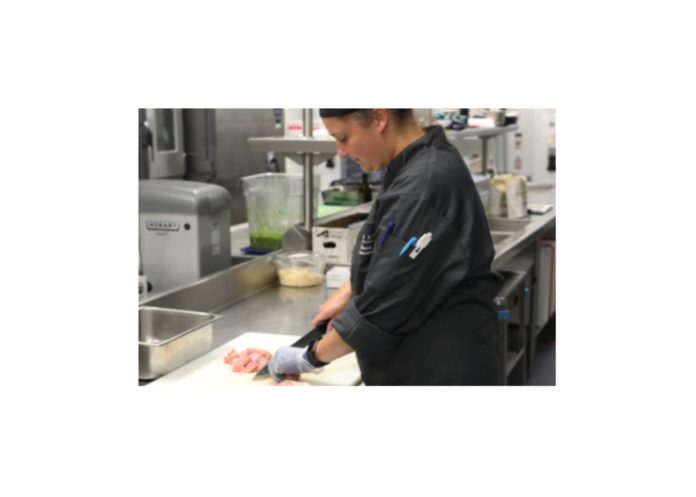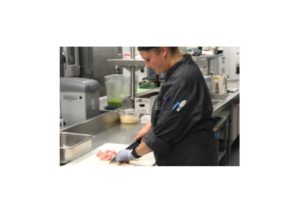

DePauw Dining and Bon Appetite started providing Halal chicken and beef options at Hoover Hall in response to a growing demand from the student body as of Aug. 31.
According to John Hecko, general manager of DePauw Dining for Bon Appetit, the Halal additions to the dining menu were in response to a growing demand from the students of different faiths. Halal options have existed in prior years, but upon looking at the demand for this school year it became apparent there was not a sustainable option for the amount of Halal food being requested.
Halal food is prepared differently from average and Kosher products. For meat to be considered Halal, it must adhere to the practices of Islamic law. The animal must be alive and healthy before slaughter. According to practicing student Ahmad Qayyum, to kill the animal, it requires a cut across the neck and the blood must be drained from that cut. During the process, a dedication, tasmiya, is often recited. For students who are practicing Muslims, Halal food is a key part of daily life. Halal and Kosher food is prepared similarly but are not considered the same. People who follow Halal can eat Kosher but people who follow Kosher can not eat Halal
To select a vendor, Hecko and his team had to research different suppliers within the area that could provide Halal products. After checking to see if the vendor met the safety and health standards set by Bon Appetit, they made sure the vendor could provide enough products to meet the demand.
Hecko said his plan is to “bring a sense of home to the students’ dining experience.”
Aliza Frame, dean of international students, was delighted to see the changes created by Hecko and his staff. “They care about our students on an individual and community level and are always looking for ways to meet our campus' dietary needs within the limitations that exist,” Frame said.
Before Halal options were available, students, like first-year Ahmad Mujtaba Qayyum, were stuck eating food like cheese pizza and french fries for most meals. “It was fun at first, but then I was sick of it,” Qayyum said.
Having grown up in Pakistan, Qayyum was raised in a family who honored Halal practices. Both prior to and upon arrival to campus, he inquired about Halal options to find there were not any readily available. After sending inquiries to Frame, he found it was a waiting game.
He is happy to finally see the change implemented. “The Halal food makes me feel more welcome on campus,” Qayyum told The DePauw.
Qayyum noted the food is not the best tasting and it is only made specially to order. “The meat had an odd smell like it had been frozen for too long,” Qayyum said.
First-year Zain Janjua, also took note of the lack of quality of the Halal food. “It typically isn’t cooked properly and is raw a lot of the time,” Janjua said of the options provided by the University. Both Janjua and Qayyum pointed out despite the flaws, it is a step in the right direction.
DePauw currently has 14 Pakistani first-year students, and Pakistan is a majority Muslim country, where most practice halal.
Hecko said he and his team is not stopping at what they currently offer. He wants to provide better products for students. Hecko plans to meet with students to improve the selections of Halal meat available and to make new additions. “This has been a long process,” Hecko said. “But we have teamed with the right people and will continue to search for new and local avenues to procure local and sustainable halal products.”
